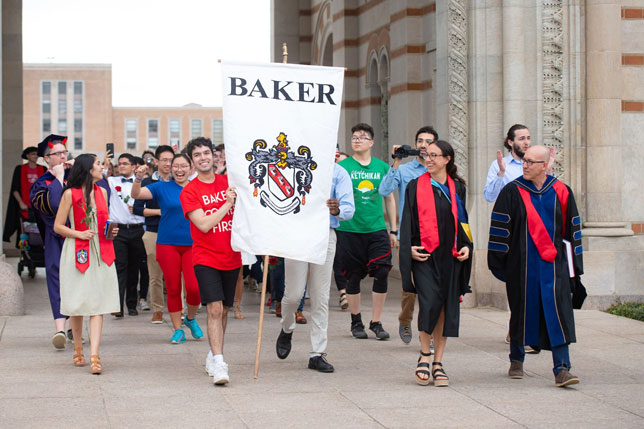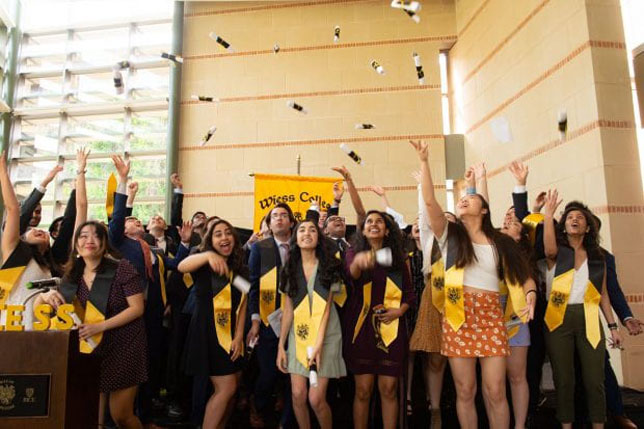Colleges, Universities Struggle with Commencement Decisions
- By Dian Schaffhauser
- 03/19/20
In the face of coronavirus concerns, Monmouth College in Illinois has sent out word that it plans to delay its graduation, which was scheduled for May 17, 2020. In a letter to the school's seniors, President Clarence Wyatt referred to a Centers for Disease Control-issued directive advising against "any gatherings of 50 or more for eight weeks." That directive was later updated to cover gatherings of 10 or more people.
Come May 17, the college will hold a virtual event, with the expectation that it will also run an in-person graduation on campus "at some point this year." As Wyatt noted, "We struggled mightily to find some way that commencement could proceed as scheduled, but events and concern for everyone's well-being makes that impossible."
Monmouth is hardly alone. So far, universities and colleges in Connecticut, Florida, Georgia, Illinois, Iowa, Massachusetts, Mississippi, North Carolina, Ohio, Minnesota, Texas, Utah and most other states have postponed commencement events.
Not all institutions have made the decision. In a message on Mar. 16, Ohio's Central State University President Cynthia Jackson-Hammond told her campus that commencement activities were "being reviewed against new, mandated crowd compliance guidelines." With the exception of a "small number" of international students who remain on campus, the university has sent its students home. Jackson-Hammond added that, "We will continue to think creatively about providing a wonderful experience for graduates and their families."

Baker College seniors take the traditional walk the Sallyport during a mock graduation at Rice University on Mar. 13. Photo by Jeff Fitlow
In Texas, a group of Rice University seniors last week held an impromptu commencement march through the grounds of their Houston campus, many in their caps and gowns, defying school officials' plans to vacate the institution as quickly as possible. According to campus reporting, by 4 p.m. on Mar. 13, a day after the closure was announced, all 11 residential colleges led processions from the Academic Quad through the Sallyport, an archway new graduates pass through, banners held high. Student organizers printed mock commencement programs and enlisted the help of the Rice University Marching Owl Band (MOB). Faculty and staff showed up, including Rice President David Leebron. Parents who were on campus also viewed the proceedings.

Wiess College at Rice University held a mock commencement inside its commons. Photo by Jeff Fitlow
The University of St. Thomas, also in Houston, will be combining its spring and winter graduation commencements into one event, taking place in December.
Ohio's Sinclair Community College, which has shifted learning to online means, has canceled its commencement ceremony with no plans to reschedule it. Instead, students earning an associate degree will "receive a package in the mail" with a congratulatory letter from the President Steve Johnson, including a link to a video of him offering a tribute and instructions for posting a photo to social media; a diploma cover for the credential; and a commencement program that will remove the specifics of the ceremony but will include names of the graduates.
The University of Wyoming still plans to go ahead with its graduation ceremony, according to a post on its coronavirus page. That's currently scheduled for May 16.
Wednesday, Mar. 18 was an eventful day at the University of Utah. First, the campus felt the effects of a major earthquake, which hit in Magna, a small town 20 miles west of the campus. While that earthquake, which measured at 5.7 on the Richter scale, and its aftershocks caused no injuries at the school, it did leave cosmetic damage to several buildings. That same day university officials announced their decision to pull the plug on the official commencement, with the intention of postponing but not necessarily canceling the ceremony. "While the ceremony that culminates graduates' hard work and dedication will be different this year, we want you to know that your accomplishments are no less impressive," President Ruth Watkins told her community in a letter.
About the Author
Dian Schaffhauser is a former senior contributing editor for 1105 Media's education publications THE Journal, Campus Technology and Spaces4Learning.